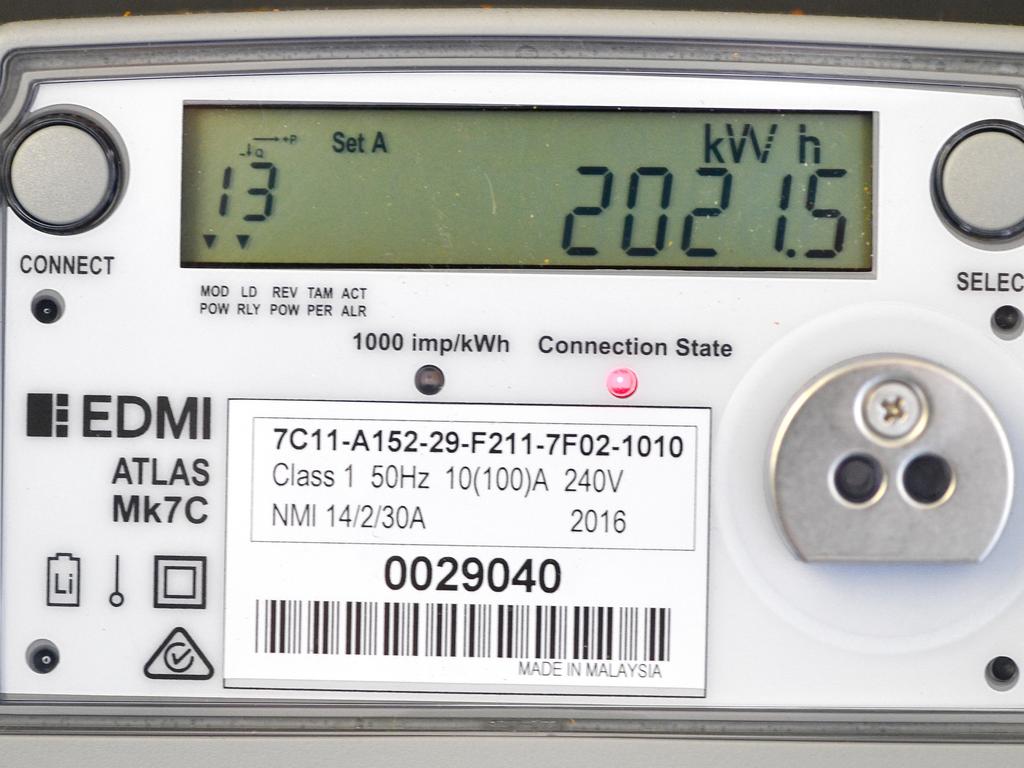Electricity price cut a risk to the profit of AGL and Origin, says experts
The Australian Energy Regulator Australians is delivering relief to consumers’ electricity bills but it will come at a cost to the profits of Origin and AGL, and dent competition, say experts.
The decision by the Australian Energy Regulator to cut electricity bills for the majority of households and businesses from July 1 will damage the profitability of companies such as Origin Energy and AGL Energy, analysts say.
And the decision would dent competition because small retailers were unable to offer discounts to entice new customers.
The AER on Tuesday said the default market offer would fall for most outside of regional NSW and Queensland from July 1 by as much as 7 per cent. Business bills could fall even further as the regulator has proposed falls of between 0.3 and 9.7 per cent
AER chair Claire Savage said the differential was due to varying costs across transmission companies, but every effort had been made to cut as much as possible.
“While wholesale markets have stabilised since their extreme peaks of 2022, this easing has been offset by the pressures we are observing in network prices. Poles and wires costs are a large component of retail prices, comprising around 40 per cent of the price,” she said.
While the draft ruling will be celebrated by the federal government and the Reserve Bank, the country’s retail industry said it would come at the cost of competition and profitability for businesses which superannuation companies invest in.
RBC Capital Markets analyst Gordon Ramsay said the fall in the default market offer reinforced his view that earnings among Australia’s largest retailers would fall next year.
“We believe this allowance increase is not commensurate with the other cost increases we are seeing across both businesses from higher bad and doubtful debts, labour cost increases, higher marketing spend, and other retail transformation costs. We expect this to lead to a narrowing of the captured margin in the (2025 financial year), and we therefore forecast falling energy markets earnings for both Origin and AGL,” Mr Ramsay said.
Mr Ramsay, however, said he believed Origin would be the strongest performing company because it would be buoyed by its LNG assets.
Australian Energy Council chief executive Sarah McNamara said the default market price has historically been a reference price which retailers offer discounts against, but the AER’s proposed trim risked a dwindling number of offers to customers.
“Unfortunately, the AER’s decision to reduce the headroom for competition may see some of the cheaper prices disappear, which in the future could negatively affect the more than 90 per cent of customers on market offers,” Ms McNamara said.
“We understand the desire to keep costs down, but this allowance serves an important function – to incentivise competition among retailers.”
Competition among retailers has steadily declined in recent years with them seeking to recoup their costs after what they deemed unsatisfactory increases to the default market offer in recent years.
The default market offer has risen more than 20 per cent over the past two years, but retailers have insisted it did not keep pace with their costs.
Illustrating the point, Ms McNamara said there has been dwindling competition in the past 18 months.
“Since May 2022 we have seen 11 smaller retailers leave the market. Regulators must ensure there is room for ongoing competition, so we do not lose more from the market,” Ms McNamara said.
The complaints of the energy industry, however, are unlikely to resonate with the public thanks to a broad perception that the industry has been extremely profitable during a global energy crunch triggered by Russia’s invasion of Ukraine.
Australia’s energy industry has highlighted recent work by the Australian Competition and Consumer Commission that its profit margins are at historic lows, and recent lucrative financial results were companies recouping heavy losses from previous years.
Unable to repair its standing with the public at present, Australia’s energy retail sector has sought to illustrate its importance to the broader economy.
“It will impact margins and the profitability of the business and there are several big name retailers on the ASX that lots of people are investors in either directly or indirectly,” said one energy market executive.






To join the conversation, please log in. Don't have an account? Register
Join the conversation, you are commenting as Logout